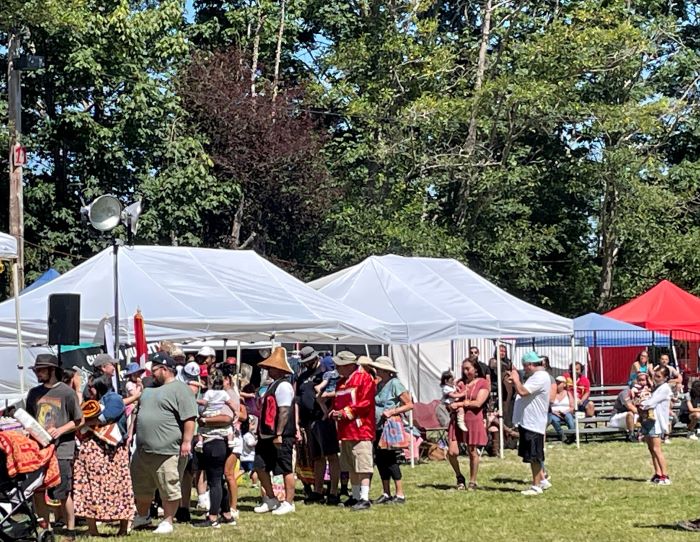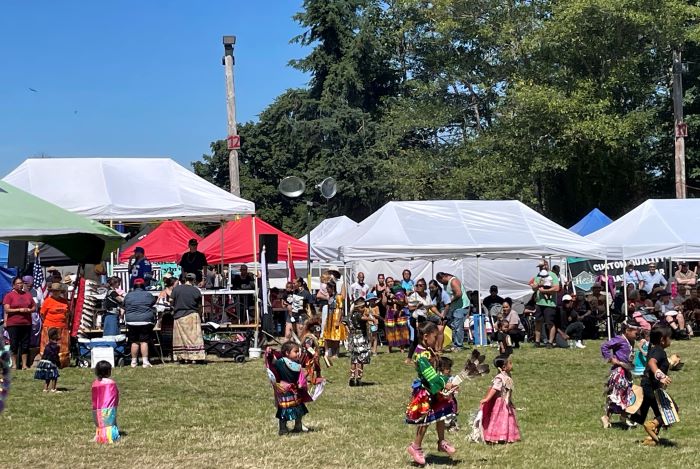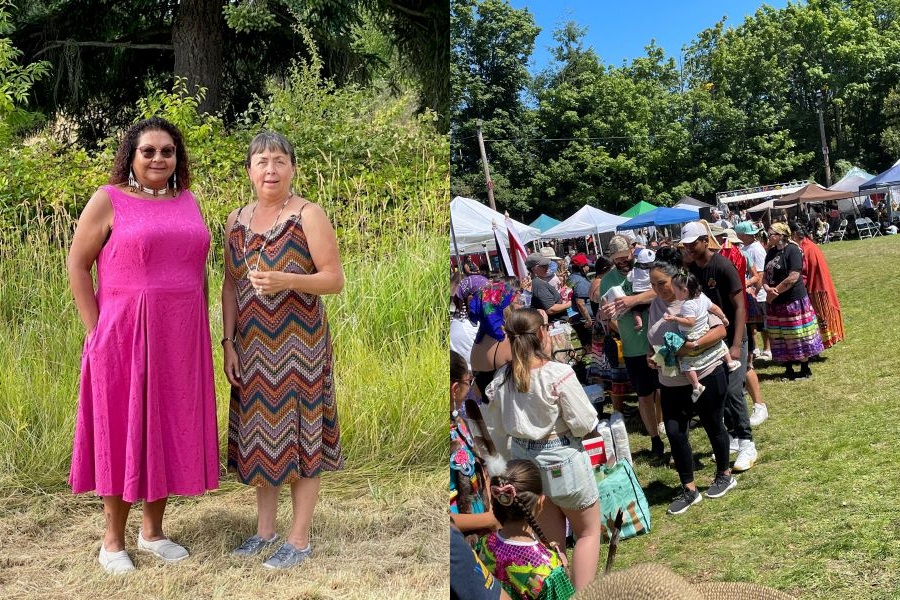We’re in These Streets: For the Children
United Way of King County is out and about in your community! We’re keeping an eye and a pulse on happenings, events, organizations, and activities throughout King County as we work side by side with communities and partners to achieve an equitable future for everyone. We’re in These Streets is an occasional blog post that highlights your community.
Recently, we stopped by the Seafair Indian Days Powwow at Seattle’s Daybreak Star Cultural Center to see the Honoring New Babies ceremony hosted by Native American Women’s Dialog on Infant Mortality.
The group is a member of the Indigenous Communities Fund, which was established by United Way in 2020 to address the impact that the COVID-19 pandemic has had on the county’s Indigenous people.
Amid the dance, song, food, festivities, and regalia, the 34th Annual Seafair Indian Days Powwow honored those in attendance too young to know what was going on but too vital to the Indigenous community’s future to leave out of the event.
All infants born since last year’s powwow were formally welcomed into the Indigenous community in a ceremony hosted by Native American Women’s Dialog on Infant Mortality, a collective of Indigenous care providers, community members, grandmothers, and allies who support and advocate for Indigenous mothers, infants, and families in Washington state.
The organization was founded in 2001 and works primarily in the Puget Sound region, meeting monthly with nonprofit organizations and government agencies to improve infant survival rates in Indigenous communities.
Since 2017, Native American Women’s Dialog on Infant Mortality has held its Honoring New Babies ceremony at the Indian Days Powwow, a three-day festival of Indigenous culture at Daybreak Star Indian Cultural Center in Seattle. The three-day event annually draws more than 15,000 people.
Native American Women’s Dialog on Infant Mortality views its Honoring New Babies ceremony at the powwow as an opportunity to bring awareness to the realities Indigenous women face in childbearing and to inform communities on how everyone can play a part in improving policies that improve the lives of Indigenous people from pregnancy to birth to adulthood. For 20 years, the organization has offered workshops for creating and using cradleboards—infant and baby carriers—for new and expectant mothers.

Said Shelley Means [Ojibwe/Lakota], the organization co-coordinator: “The fact that we work as a collective in our community means that we always have to challenge people’s understanding of what Native American Women’s Dialog on Infant Mortality is by not just only offering cradleboard classes as a way of showing there is cultural work that our group does. In the community, it’s important to bring babies and parenting people more prominently into how the community sees the work we do.”
The Honoring New Babies ceremony at the powwow followed one of the more popular annual performances—the Tiny Tots exhibition, where toddlers and other young children dance in full regalia. Last year’s Honoring New Babies might have aptly been named Honoring New Preschoolers since it was the first such ceremony since the COVID-19 pandemic.
This year, Native American Women’s Dialog on Infant Mortality gathered the recently born infants inside the large powwow circle, prompting the crowd of thousands to bellow “oooooh!” and “awwww!” while drummers played songs.
The new babies and their parents were also gifted with ribbon onesies, early reader books, diapers, wipes, medicine bags, and lavender sachets. The organization also provides information for powwow attendees and provides infant changing rooms for those who attend.

According to Native American Women’s Dialog on Infant Mortality, Indigenous babies born in Washington state die at a rate that is three times higher than that of white babies. Indigenous babies are also more than likely to be born prematurely and with a lower-than-average birth rate. Means and co-coordinator Leah Henry-Tanner [Nez Perce] say that they continue to educate themselves as well as the Indigenous communities they serve to improve the lives and well-being of the next generation.


Comments